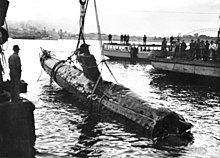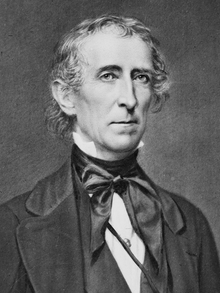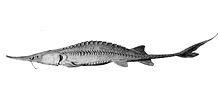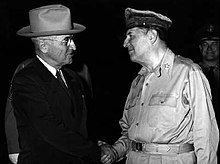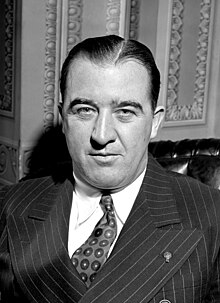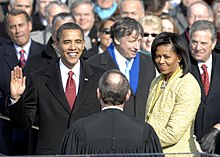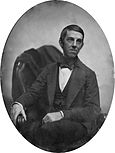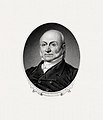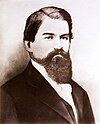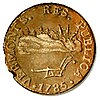Introduction
</noinclude>

| |

| |
</noinclude>
Did you know (auto-generated) -
</noinclude>

- ... that Francis Childs was the publisher and printer of The New York Daily Advertiser, the third daily newspaper to appear in the United States, in 1785?
- ... that GhostRider is the longest wooden roller coaster on the West Coast of the United States?
- ... that Anne Cooke Reid founded the first Black summer theater in the United States?
- ... that according to Theodore Roosevelt, U.S. Supreme Court justice David J. Brewer had "a sweetbread for a brain" and was a "menace to the welfare of the Nation"?
- ... that Fred H. Brown went from a bean eater to a bean counter?
- ... that the 2023 US FIBA Basketball World Cup team is the first American national team of NBA players without an All-NBA player?
- ... that John Oliver has been credited with influencing United States law and culture, a phenomenon dubbed the "John Oliver effect"?
- ... that 16 Montana youths are plaintiffs in the lawsuit Held v. Montana, the first constitutional climate change lawsuit to go to trial in the United States?
Selected society biography -
</noinclude>
Oliver Wendell Holmes, Sr. (August 29, 1809 – October 7, 1894) was an American physician, professor, lecturer, and author. Regarded by his peers as one of the best writers of the 19th century, he is considered a member of the Fireside Poets. His most famous prose works are the "Breakfast-Table" series, which began with The Autocrat of the Breakfast-Table (1858). He is recognized as an important medical reformer.Surrounded by Boston's literary elite—which included friends such as Ralph Waldo Emerson, Henry Wadsworth Longfellow, and James Russell Lowell—Holmes made an indelible imprint on the literary world of the 19th century. Many of his works were published in The Atlantic Monthly, a magazine that he named. For his literary achievements and other accomplishments, he was awarded numerous honorary degrees from universities around the world. Holmes's writing often commemorated his native Boston area, and much of it was meant to be humorous or conversational. Some of his medical writings, notably his 1843 essay regarding the contagiousness of puerperal fever, were considered innovative for their time. He was often called upon to issue occasional poetry, or poems written specifically for an event, including many occasions at Harvard. Holmes also popularized several terms, including "Boston Brahmin" and "anesthesia".
Selected image -
</noinclude>
Selected culture biography -
</noinclude>
Edgar Allan Poe (January 19, 1809 – October 7, 1849) was an American poet, short-story writer, editor and literary critic, and is considered part of the American Romantic Movement. Best known for his tales of mystery and the macabre, Poe was one of the earliest American practitioners of the short story and is considered the inventor of the detective-fiction genre. He is further credited with contributing to the emerging genre of science fiction. He was the first well-known American writer to try to earn a living through writing alone, resulting in a financially difficult life and career.Poe and his works influenced literature in the United States and around the world, as well as in specialized fields, such as cosmology and cryptography. Poe and his work appear throughout popular culture in literature, music, films, and television. A number of his homes are dedicated museums today.
Selected location -
</noinclude>
Washington, D.C. is the capital of the United States founded on July 16, 1790. The U.S. Constitution allows for the creation of a special district to serve as the permanent national capital. The District is therefore not a part of any U.S. state and is instead directly overseen by the federal government. Within the District, a new capital city was founded in 1791 and named in honor of George Washington.The centers of all three branches of the U.S. federal government are located in the District, as are many of the nation's monuments and museums. Washington, D.C., is governed by a mayor and a 13-member city council. However, the United States Congress has supreme authority over the city and may overturn local laws. Residents of the District therefore have less self-governance than residents of the states.
Selected quote -
</noinclude>
Anniversaries for March 29
</noinclude>
- 1799 – New York passes a law aimed at gradually abolishing slavery in the state.
- 1806 – Construction authorized of the Great National Pike, better known as the Cumberland Road, the first United States federal highway.
- 1886 – Dr. John Pemberton (pictured) brews the first batch of Coca-Cola in a backyard in Atlanta.
- 1961 – The Twenty-third Amendment to the United States Constitution is ratified, allowing residents of Washington, D.C. to vote in presidential elections.
- 1971 – A Los Angeles jury recommends the death penalty for cult leader Charles Manson and three female followers.
- 1973 – The last United States soldiers leave South Vietnam, ending American involvement in the Vietnam War.
Selected cuisines, dishes and foods -
</noinclude>

Selected panorama -
</noinclude>
More did you know? -
- ...that Vermont coppers (pictured) were the currency used in Vermont before it became a U.S. state in 1791?
- ...that Lighthouse Hill on Staten Island got its name from the Staten Island Lighthouse, built in 1912, which towers 141 feet (43 meters) above the Lower New York Bay and can be seen as far as 18 miles (29 km) away?
- ...that Lucy Hobbs Taylor was the first female dentist in the United States?
Topics
Categories
Featured content
</noinclude>
List articles
</noinclude>
|
Culture Education Economy |
Geography Government
History |
Law Media Natural history |
People Protected areas Religion Transportation |
Tasks
</noinclude>
Related portals
</noinclude> State-related
Region or city-related
Sports-related
Transportation-related
Other US-related
Nearby areas
WikiProjects
</noinclude>
United States is one of the United States WikiProjects.
Associated Wikimedia
</noinclude>
The following Wikimedia Foundation sister projects provide more on this subject:
-
 Commons
Commons
Free media repository -
 Wikibooks
Wikibooks
Free textbooks and manuals -
 Wikidata
Wikidata
Free knowledge base -
 Wikinews
Wikinews
Free-content news -
 Wikiquote
Wikiquote
Collection of quotations -
 Wikisource
Wikisource
Free-content library -
 Wikiversity
Wikiversity
Free learning tools -
 Wikivoyage
Wikivoyage
Free travel guide -
 Wiktionary
Wiktionary
Dictionary and thesaurus
More portals
Purge server cache






